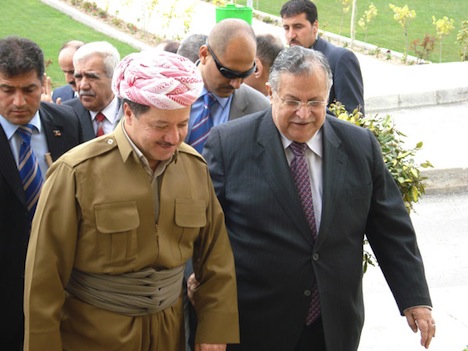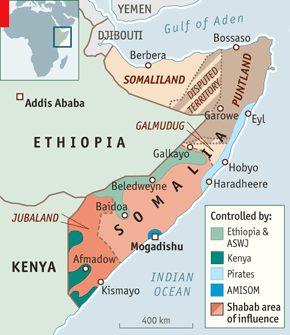If there’s any positive monument to the US-led occupation of Iraq, it’s the relative autonomy and stability of Iraqi Kurdistan, the northern sliver of Iraq.![]()
![]()
Iraqi Kurds are voting in a parliamentary election today that’s likely to have profound consequences for the future governance of a region that serves as a bulwark against the sectarian conflict in the south of Iraq, a government in Turkey to the north that remains largely unfriendly to the Kurdish minority and a civil war to the west in Syria.
The election is notable because the Kurdish president of Iraq Jalal Talabani, who is more responsible for today’s autonomous Iraqi Kurdistan than any other Kurdish politician, lies ill in Germany after suffering a stroke last December. Talabani’s absence makes it likely that the pro-independence party he founded in 1975, the Patriotic Union of Kurdistan (PUK, یەکێتیی نیشتمانیی کوردستان) will suffer losses in today’s election.
It’s also notable because, for the first time since Iraqi Kurdistan gained autonomy, the PUK and the Kurdistan Democratic Party (KDP, پارتی دیموکراتی کوردستان), will run on separate tickets after an often uneasy alliance first struck in 1992 — the two parties ran on joint tickets in the previous 2005 and 2009 elections, with a joint KDP/PUK administration. KDP leader Masoud Barzani (pictured above, left, with Talabani, right) has served as president of the Iraqi Kurdistan region since 2005.
Home to between 5.5 million and 6.5 million of Iraq’s 31 million residents, Iraqi Kurdistan first obtained autonomy in the early 1990s after the sustained efforts of Kurdish nationalist figures like Talabani in the 1970s and the 1980s, when Iraqi Kurds found common cause with Iranian Kurds during the horrific Iran-Iraq War of the 1980s. After the imposition of a no-fly zone by US-led forces in the aftermath of the Persian Gulf War, Iraqi Kurdistan started to emerge from the iron-fisted rule of Ba’athist strongman Saddam Hussein.
The Kurdish government and the national Iraqi government continue to fight over the sharing of oil revenue and internal territorial disputes, especially from near Kirkuk, where Kurds constitute around 50% of the population, though it lies technically outside of the Iraqi Kurdistan region. Nonetheless, Iraqi Kurdistan’s autonomy was cemented with the US invasion of Iraq in 2003 that toppled Saddam. Even as the rest of Iraq crumbled into civil war between Sunni and Shiite militia, Kurdish Iraq only strengthened and Erbil, the capital of Iraqi Kurdistan, became one of the few peaceful urban centers in Iraq. Talabani, who is a Sunni Muslim, became the president of Iraq in April 2005, as an Iraqi leader with primary associations to his Kurdish identity than to the already toxic sectarian rift between Sunni and Shi’a that would come to dominate the rest of the 2000s.


